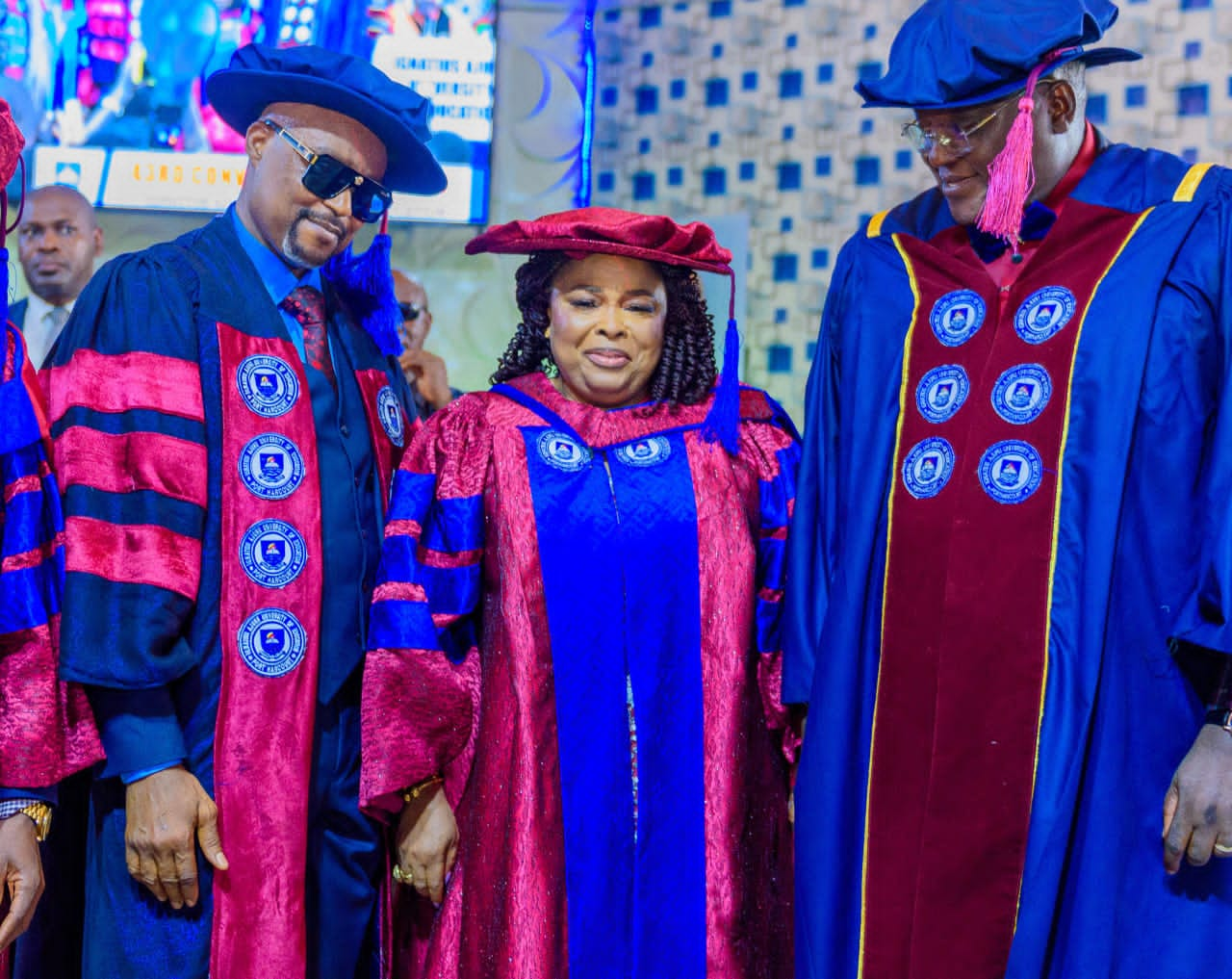Education
Don Charts Path To Economic Growth
Prof. Tunde Samuel of the Lagos State University (LASU), has urged both the federal and state governments to embrace vocational and technical education for rapid economic transformation.
Samuel who made the call on Wednesday in Lagos during the institution’s 49th inaugural lecture said there was no need investing in a tertiary education system hat would not guarantee employment.
Delivering a paper entitled “Total Deregulation, the Inevitable Bitter-Pill; or Partial Deregulation, a Policy Heresy”, Samuel said total deregulation was inevitable even though it was inappropriate now.
“Deregulation of the tertiary education will enable the educational sector fulfill its social welfare function,’’ he said.
Samuel, a Professor of Economics of Education in LASU’s Faculty of Education, said the cost of running tertiary education was enormous and government was being over-stretched financially.
“The United Nations’ Unit Cost Estimate for tertiary education in Africa was now put at between N2.3 million and N1.5 million for upper limit and lower limit respectively.
“That figure covered a four year degree programme,’’ he said.
Samuel noted that majority of Nigerians would not have access to tertiary education with the current per capital rate of less than two US dollars per day.
He said the provision of education for all by the government was becoming increasingly difficult.
The university don however added that privatisation would encourage efficiency and effectiveness, “even though this would be at the expense of access”.
The former Special Adviser on Education to ex-Gov. Bola Tinubu of Lagos state said the Purchasing Power Parity (PPP) was a major reason for deregulation of tertiary education.
According to him, PPP was the rate of currency conversion, which eliminates differences in price levels among countries.
He said the weak exchange rate in Nigeria explained why university professors were poorly paid in spite of the noise-making about the new salary structures and allowances.
Samuel recommended that all tertiary institutions in the country must evolve strategic plan of action for meaningful development and transformation of the tertiary orbit.
He also urged all tertiary institutions to stop multiplying academic programmes when the existing ones were under-funded.
Samuel said while the 26 per cent benchmark by UNESCO was no longer realistic, the 2012 IMF per capital N1.5 million to N2.3 million represents a realistic per capital tertiary education.
Education
‘Our Target Is To Go Beyond Academic Accomplishments’

The Acting Vice Chancellor of Ignatius Ajuru University of Education, Port Harcourt, Prof. Okechuku Onuchuku, emphasised the need for students to go beyond academic achievements during the university’s 43rd Convocation ceremony.
The theme, “The University Culture In Practice, The IAUE Experience,” highlights the importance of embracing cherished traditions and intellectual values that define great universities.
Prof. Onuchuku encouraged the new graduates to work hard and persevere, noting that their convocation marks a new beginning in their careers and personal lives. He emphasised that they must prove themselves worthy of the certificates and prizes they have received.
According to him, out of 2,887 first-degree graduands, four made First Class, 403 secured Second Class Upper, 2,030 got Second Class Lower, and 450 graduated with Third Class. Additionally, 1,492 postgraduate students graduated, including 306 PhD holders.
The Sole Administrator of Rivers State, Vice Admiral Ibok-Ete Ekwe Ibas (Rtd), praised the university’s commitment to academic excellence and institutional maturity. He commended the Acting Vice Chancellor for achieving full accreditation for 47 academic programmes and implementing the NUC’s Core Curriculum Minimum Academic Standards.
The administrator urged the new graduates to uphold the positive values instilled in them by the university and strive for continuous knowledge and improvement.
By: King Onunwor
Education
Niger Delta Students Suspend Protest Against NDDC In PH

The Niger Delta Students Union Government, Rivers State Chapter (NIDSUG), has suspended its planned protest against the Niger Delta Development Commission (NDDC) state office in Port Harcourt. The suspension followed an intervention by the state Commissioner of Police, CP Olugbenga Adepoju.
The students had planned to protest on Thursday, citing alleged neglect by the NDDC, particularly in welfare and capacity-building programmes for students from the state. However, after the police intervention, the students agreed to participate in a roundtable discussion with the commission to address their concerns.
NIDSUG leader, Comrade Loveday Njoku, expressed dissatisfaction with the commission’s alleged exclusion of students from benefiting from its programmes. He presented a seven-point demand, including the reintroduction of scholarships for undergraduate and postgraduate students. Njoku emphasised that education is crucial for community development and urged the commission to invest in the future leaders of the state.
The students warned that if their demands are not met, they will resume the protest and occupy the state commission office until their demands are addressed. Despite previous attempts to reach out to the commission’s management team, the students claimed their efforts were unsuccessful.
By: Akujobi Amadi
Education
Administrator Inspects School

As part of efforts to improve the welfare and overall quality of education for students in Obio/Akpor Local Government Area, the Sole Administrator, Sir (Dr.) Clifford Ndu Walter DSSRS, FCAI, JP, paid an unscheduled visit to Universal Primary School, Rumukwurusi.
During the visit, Sir Walter expressed deep concern over the deplorable state of the school and its surrounding environment. He reaffirmed his administration’s commitment to the development of the education sector, stressing its critical role in nation-building.
“I have visited the primary school in Ogbogoro, and now I’m here at the Universal Primary School, Rumukwurusi. I am not satisfied with what I’ve seen,” he stated, indicating that more surprise visits to schools would follow.
To address the issues, the Sole Administrator directed the Council Engineer to commence process for rehabilitation of the school.
The visit was part of a broader initiative aimed at conducting on-the-spot assessments of educational facilities to determine the level of intervention required by the local government council.
Dr. Walter also assured the teachers of his unwavering commitment to revamp the school and improve the learning environment for both staff and students.

